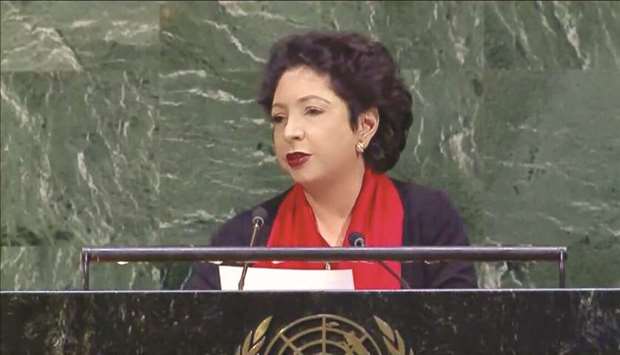Pakistan has urged the aspirants of permanent seats on the UN Security Council (UNSC) – India, Brazil, Germany and Japan – to make “serious efforts” to show flexibility and not be an obstacle in negotiations to reform the 15-member body.
“The way forward entails displaying flexibility rather than reviving in another guise any outmoded notion of power and privilege,” ambassador Maleeha Lodhi said on Wednesday, while participating in this year’s final session of the deadlocked Inter-governmental Negotiations (IGN), aimed at making the Council more effective, representative and transparent.
Indeed, she said, it is clear that the obstacles to reform of the Security Council are issues of power and privilege, adding that those sticking to their goal of seeking power and privilege for themselves stood in the way of progress in the talks.
Full-scale negotiations to reform the Security Council began in the General Assembly in February 2009 on five key areas – the categories of membership, the question of veto, regional representation, size of an enlarged Security Council, and working methods of the council and its relationship with the General Assembly.
Despite a general agreement on enlarging the Council, as part of the UN reform process, member states remain sharply divided over the details.
Known as the Group of Four, India, Brazil, Germany and Japan have shown no flexibility in their campaign to expand the Security Council by 10 seats, with six additional permanent and four non-permanent members.
On the other hand, the Italy/Pakistan-led Uniting for Consensus (UfC) group opposes any additional permanent members, saying that such a move will not make the Security Council more effective and also undermine the fundamental principle of democracy that is based on periodic elections.
The Security Council is currently composed of five permanent members – Britain, China, France, Russia and the United States – and 10 non-permanent members.
In her remarks, Lodhi stressed the need for a consensual pathway towards the Council’s reform, rather than through a quick-fix solution.
Lodhi: The way forward entails displaying flexibility, not reviving in another guise any outmoded notion of power and privilege.

Maleeha Lodhi
